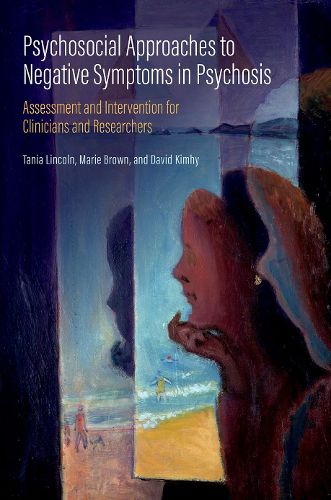Readings Newsletter
Become a Readings Member to make your shopping experience even easier.
Sign in or sign up for free!
You’re not far away from qualifying for FREE standard shipping within Australia
You’ve qualified for FREE standard shipping within Australia
The cart is loading…






Psychosocial Approaches to Negative Symptoms in Psychosis provides cutting edge information about psychotherapeutic intervention and assessment of negative symptoms. Negative symptoms are known to be the most debilitating aspect of psychotic disorders and are difficult to treat. Psychopharmacological interventions have been shown to have little impact on symptoms and at times may even exacerbate them. As a result, the development and use of psychological intervention has long been seen as a potential method for treating these difficult symptoms. However, to date, there has been no comprehensive book that focuses on negative symptoms from a psychosocial perspective. The book fills this gap through introducing the reader to key empirically-supported and emerging psycho-social and behavioral treatments, including social skills training, exercise interventions, cognitive behavioral therapy, amongst others. Included in the book are also lived experience and critical perspectives, as well as various approaches to assessment. Psychosocial Approaches to Negative Symptoms in Psychosis will be a valuable resource for both clinicians working in mental health settings and researchers seeking to study negative symptoms.
$9.00 standard shipping within Australia
FREE standard shipping within Australia for orders over $100.00
Express & International shipping calculated at checkout
Stock availability can be subject to change without notice. We recommend calling the shop or contacting our online team to check availability of low stock items. Please see our Shopping Online page for more details.
Psychosocial Approaches to Negative Symptoms in Psychosis provides cutting edge information about psychotherapeutic intervention and assessment of negative symptoms. Negative symptoms are known to be the most debilitating aspect of psychotic disorders and are difficult to treat. Psychopharmacological interventions have been shown to have little impact on symptoms and at times may even exacerbate them. As a result, the development and use of psychological intervention has long been seen as a potential method for treating these difficult symptoms. However, to date, there has been no comprehensive book that focuses on negative symptoms from a psychosocial perspective. The book fills this gap through introducing the reader to key empirically-supported and emerging psycho-social and behavioral treatments, including social skills training, exercise interventions, cognitive behavioral therapy, amongst others. Included in the book are also lived experience and critical perspectives, as well as various approaches to assessment. Psychosocial Approaches to Negative Symptoms in Psychosis will be a valuable resource for both clinicians working in mental health settings and researchers seeking to study negative symptoms.